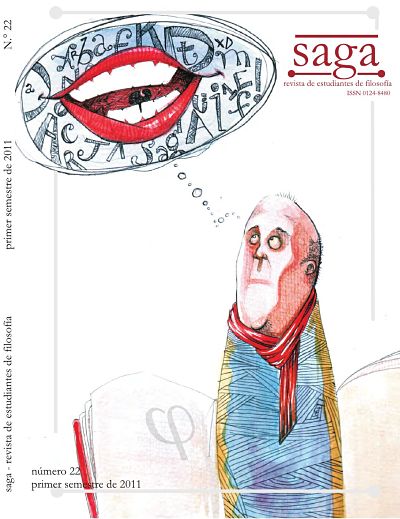Realismo y Equivalencia Empírica: Davidson y Quine
Realism and Empirical Equivalence: Davidson and Quine
Keywords:
Davidson, Quine, Epistemología, Equivalencia empírica, Metafísica (es)Davidson, Quine, Epistemology, Empirical equivalence, Metaphysics (en)
Downloads
In one of its simplest formulations, the quinean thesis of the empirical equivalence of theories claims that, given a theory T that accounts for a set of observations O, it is possible that there is a different logically incompatible theory T* that is empirically equivalent with T, i. e.it accounts for the same set O of observations. The aim of this paper is to examine the forceful consequences of this claim for a naïve scientific realism; this task will require a rephrasing of the empirical equivalence thesis in more accurate terms and an appraisal on its plausibility. I shall conclude that the empirical equivalence thesis does not have a logical-philosophical character, as those upon which it rests (underdetermination of theories by experience, epistemological holism), but a practical one, and that it qualifies over the actual possibilities for observation and testing; this argument will also be used to show how some sort of realism might be preserved, despite some of Quine’s assertions.
References
Bergström, L.“Quine, Underdetermination, and Skepticism”. The Journal of Philosophy 7 (1993): 331-358.
Davidson, D.“A Coherence Theory of Truth and Knowledge”. Subjective, Intersubjective, Objective. Oxford: Clarendon Press, 2001. 137-153.
Hempel, Carl. Philosophy of Natural Science. New Jersey: Prentice-Hall, 1966.
Quine, W. V. O. “Two Dogmas of Empiricism”. From a Logical Point of View. Cambridge: Harvard University Press, 1980.
Quine, W. V. O.) “On What There Is” en: From a Logical Point of View. Cambridge: Harvard University Press, 1980.
Quine, W. V. O. “On Empirically Equivalent Systems of the World”. Erkenntnis 9 (1975): 313-328.
Quine, W. V. O. “Tres Indeterminaciones”. Acerca del conocimiento científico y otros dogmas. Barcelona: Paidós, 2001.
How to Cite
APA
ACM
ACS
ABNT
Chicago
Harvard
IEEE
MLA
Turabian
Vancouver
Download Citation
Article abstract page views
Downloads
License
Todos los documentos alojados en esta web están protegidos por la licencia CC attribution non commercial no derivatives 4.0 intenational














